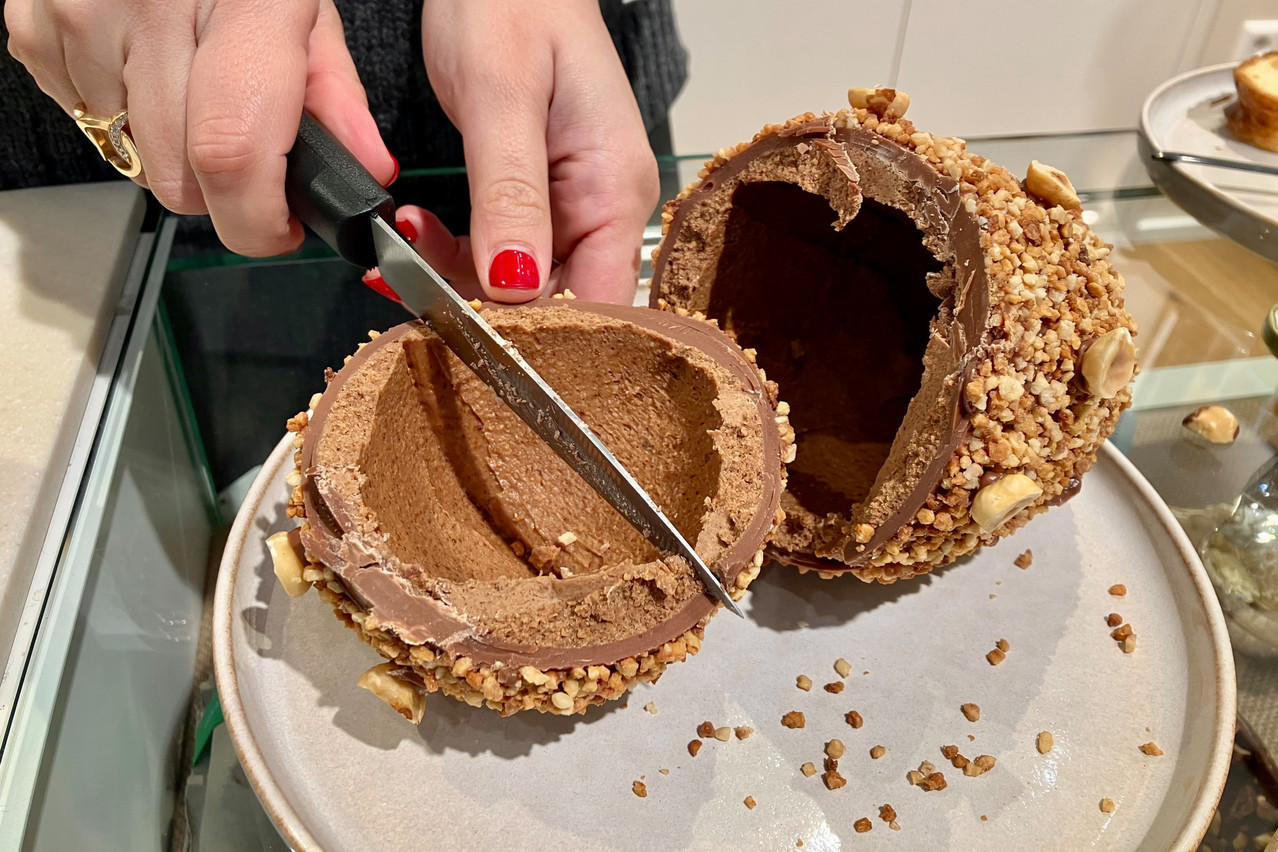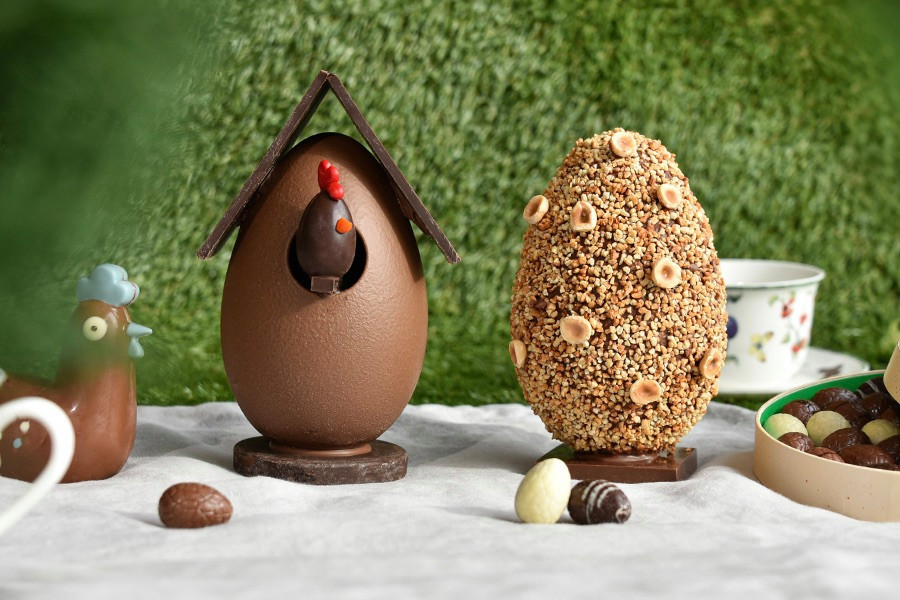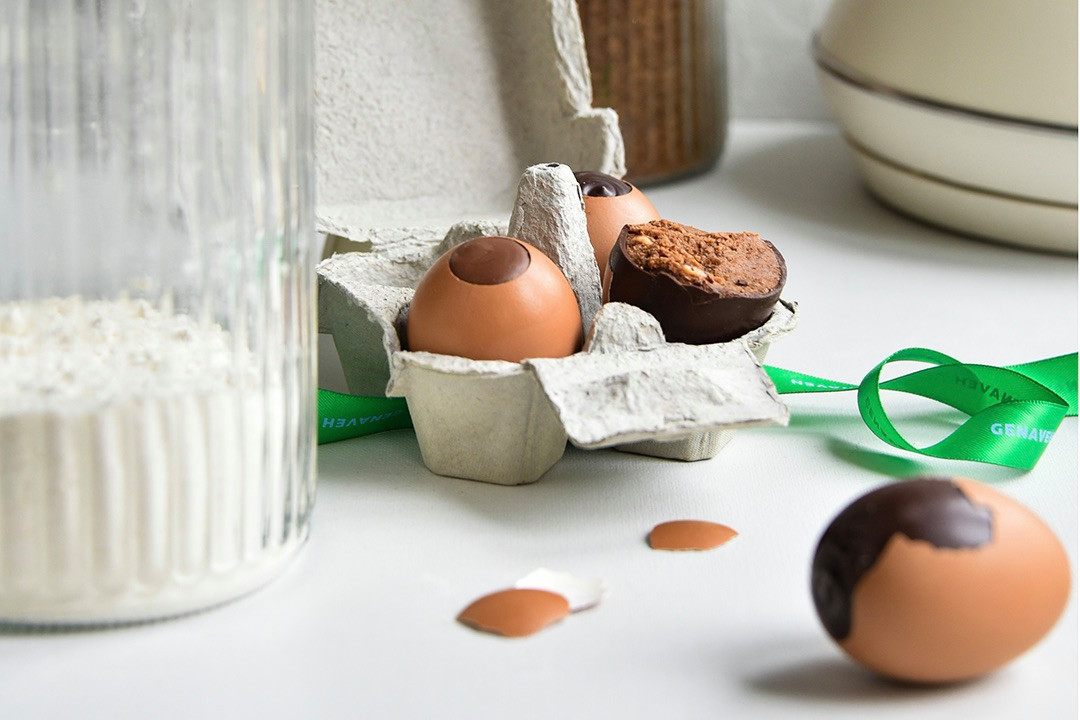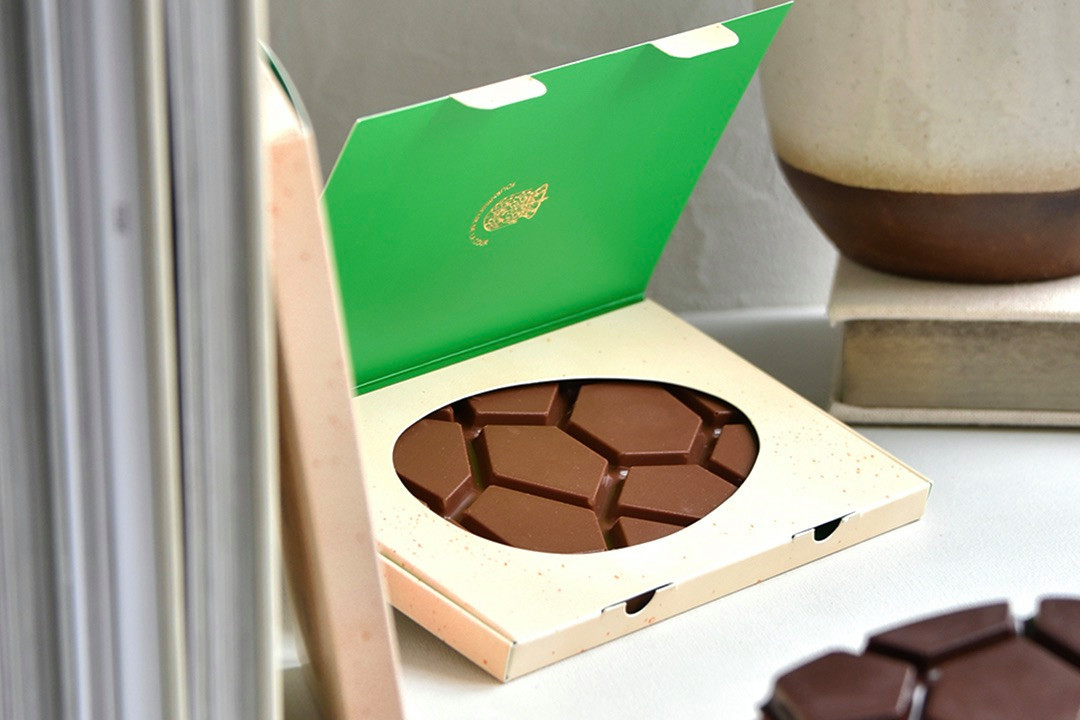Genaveh’s shop in the city centre now features some of the chocolate-maker’s Easter products. Eggs adorn the shelves--giant chocolate eggs (filled with miniature eggs), almond praline eggs dotted with chunks of hazelnut, delicate chicken eggshells filled with chocolate and praline, a birdhouse in the form of an egg--along with chocolate chicks and rabbits.
Although the extra-large chocolate and praline eggs are sold in transparent plastic boxes, many of the smaller items--the chocolate-filled chicken eggs, the smaller Easter eggs, or the baskets of eggs and “fritures” (chocolates in the form of fish or seashells)--are sold in paper or cardboard cartons. Chocolate bars in the shape of eggs--available in milk or dark chocolate and filled with hazelnut or almond praline--are also packaged in flat, plastic-free containers that expose the chocolate inside.
Boosting sustainability efforts
“We try to remove the plastic as much as possible,” says director , talking about the sustainability efforts the company has made in terms of packaging. In the Genaveh boutique, it’s easy to open some of the (closed) cardboard boxes to display the chocolate creations inside, but it’s trickier for some of the resellers that Genaveh works with to do the same. It’s not as easy to sell, she notes.
When it comes to the products themselves, “we are constantly improving and innovating our products, recipes and ingredients,” Kahn tells Delano. “Our milk chocolate and dark chocolate are made with cocoa beans whose traceability is ensured, and their production is carried out under very positive conditions, both environmentally and socially. The cocoa beans for our dark chocolate come from Peru and are organic and fairtrade, while the beans for our milk chocolate come from the small island of São Tomé and Príncipe.”
No refined sugar, no palm oil
“We have also eliminated refined white sugar from both our chocolates, replacing it with unrefined cane sugar,” adds Kahn. “The same has been done for our pralines, which are now made with unrefined cane sugar.” Unrefined sugar is still purified and processed, but retains more cane molasses than refined sugar and has more micronutrients and minerals (though, it should be noted, these are present in extremely limited quantities and both types of sugar can lead to weight gain and other health issues).
Palm oil is an ingredient often found in chocolate and chocolate spreads, criticised for its role in deforestation. At Genaveh, however, “we don’t use palm oil at all,” says Kahn.
Read also
Another change concerns lecithin, an additive used to prevent the separation of ingredients and stabilise processed foods. “The classical and regular soy lecithin you can find in most chocolates” has been replaced “by “European sunflower lecithin,” she explains. Soy and sunflower lecithin serve the same purpose but are obtained through different processes.
And “regarding other ingredients, we source as locally as possible, when possible,” says Kahn. The “milk, butter, cream and honey” used in Genaveh’s products are, for example, “made in Luxembourg.”






